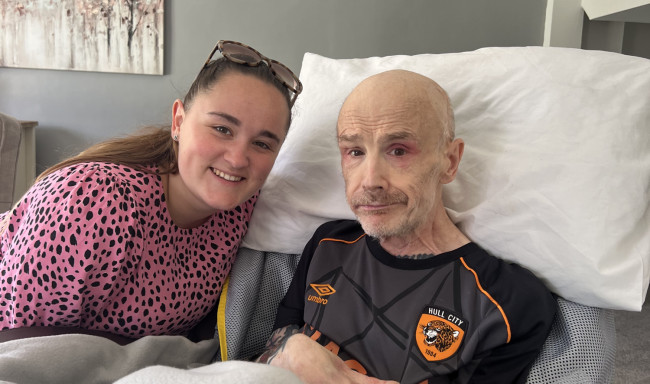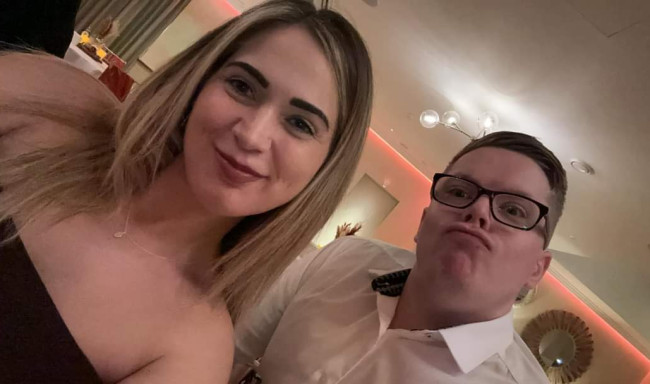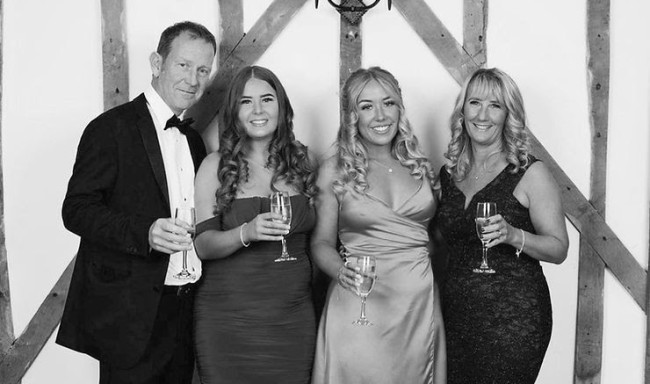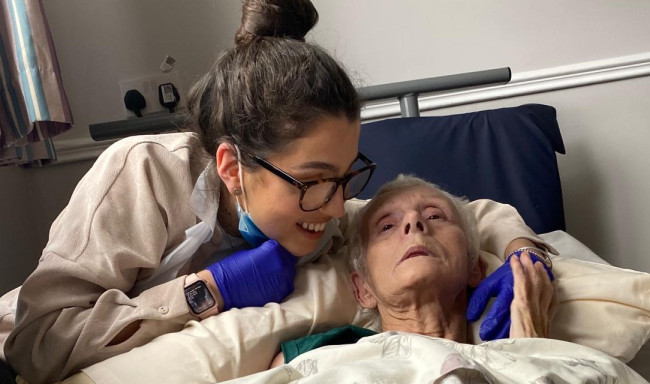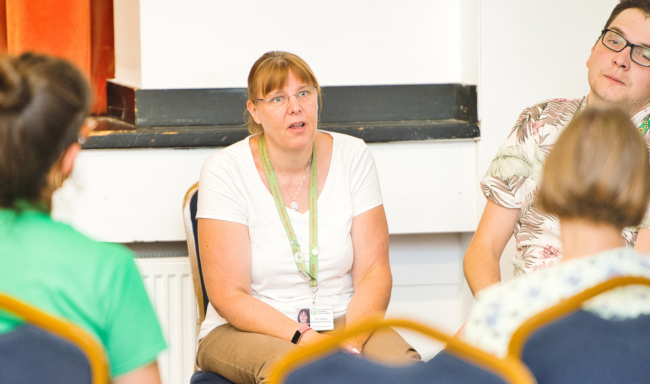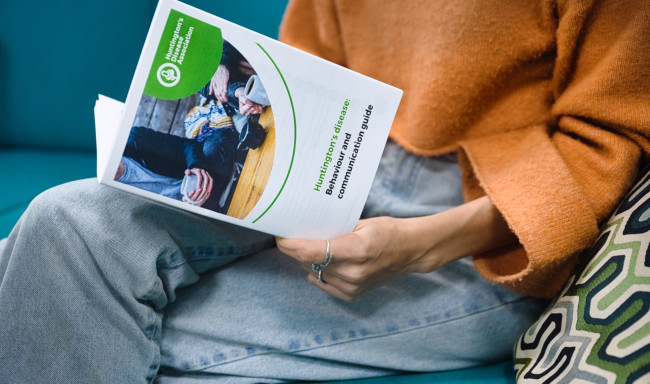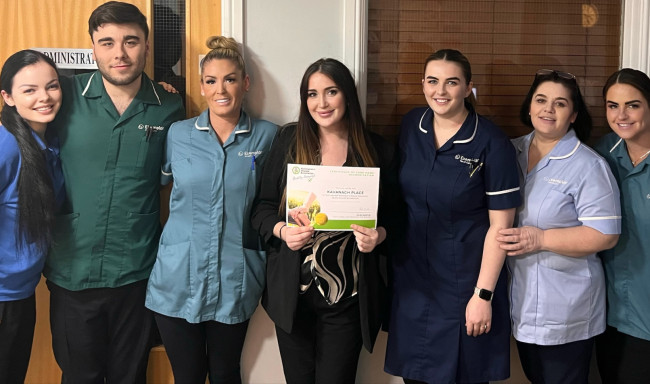The struggles of navigating through the healthcare system with Huntington's disease.
Trigger warning
The following blog contains information that some readers may find distressing.
The beginning
I met my husband when I was age 18, he was 22, and we married five years later.
I was told that his father had died, ten years after his parents divorced, his father had become “depressed" and lived at a psychiatric hospital until a sudden death at 49 when my husband was only 18.
Ten years later - the going gets tough
Our first child arrives according to plan and I return to work to pay the bills. My husband then changes jobs four times in four years. Our relationship struggles over the next two to three years, tiredness and laziness around the house, and many DIY projects started but were not finished.
He refused to apply for benefits but I had a job.
Mood swings occur between jobs. Then he became aggressive with suicidal threats, it was scary.
The journey continues
I had by now received counselling from three non-NHS organisations. We had our second daughter and I returned to work my job itself becoming very stressful.
Then he left a job twice, half completing a teaching course three times. Reading the leaflet behaviour problems on the Huntington Disease Association website I realised what I had been living with for ten years.
The NHS journey
My husband’s GP accepted my word without his patient attending and phoned a neurologist for advice. Letters and phone calls from a neurology secretary are misunderstood by the patient (he was assumed to have intact capacity and organisational skills) and anyway he could not see that anything was wrong.
A bike accident convinces him and his family that something is odd about his balance and twitching. My husband managed half a neurology outpatient appointment- long enough to confirm my suspicions of Huntington’s disease.
There was no one to ask if I had any questions or needed information. There were no suggestions to his GP on who was available locally, or elsewhere, with experience in Huntington’s disease.
We discover that Huntington’s disease was indeed on his father’s death certificate- a family member tracks it down. It was hidden.
Another carer and wife recommend the local ‘memory service’ as being effective. But they are for the elderly? He doesn’t have dementia, does he?? We were under 50.
It was two years after our neurology diagnosis that a psychiatrist for the elderly says:
"Visiting patients with poor insight and who are difficult to engage in what our team does."
I wanted to hug him! He listed and noted the risks of aggression that I had lived with for years and the risks to the emotional health of the children (then 7 and 14).
The journey gets harder still
With help from the Memory Service Occupational Therapist, our understanding of Huntington’s disease’s effect on thinking helped us adapt.
He remained unable to see the effect of his behaviour on others. Rational discussion on some points was impossible. He appeared selfish, his personality had changed.
I travel for three hours each way to the nearest genetics centre for some sessions of counselling myself, the only thing on offer.
Our family outings, although positive, had a recurring disaster theme- frequent rescues and challenges as Huntington’s disease progressed, and travelling become stressful and exhausting as the brain tries to cope with planning and sequencing.
Any discussions about making family life easier became circular rows.
"I finally recognise I am a 'carer'."
Small tasks became more difficult resulting in agitated aggressive outbursts – with no recognition of their impact.
Any discussion of respite caused huge anxiety and worsened the agitation. I could not function and go off sick from work, then I left my job basically due to mental ill-health.
Our eldest daughter struggled to study A levels and my youngest daughter refused to go to school, she was worried about daddy, and now mummy.
Crisis
Domestic violence teams supported the next stage of my journey.
I represented myself in court to obtain an Emergency Injunction to protect myself and my children. In court, the barrister told me I had to choose between caring for my children and my husband whom I still loved and wanted to care for.
It took several weeks of emergency respite before it finally sunk in that my husband’s unpredictable behaviour was a high safeguarding risk, and he could not return home for me to continue his care, alongside the children.
The journey ten years later
My husband is in good nursing care. I pay for separate private psychologists for myself and my two daughters. The most recent was hard to find during the pandemic. Our daughters are processing the traumas of the past and coming to terms with the risks in their future.
Currently
Getting health care professionals on board when a person is in denial or refuses to see clinicians is hard. Then their families are blocked from support. Professionals cannot breach confidentially to explain. Looking back, I was traumatised by challenging behaviour and my struggles to access experienced mental health support.
In Primary Care knowledge of Huntington’s disease is variable, also how they deal with those who lack the insight to access Secondary or Tertiary Care. Do professionals understand current pathways? Where do they exist?
At what point does a family member, of any age, acknowledge that they are a 'carer' and seek support for their mental health? How on earth do they fit that alongside work and care?
In our region, there is now a highly experienced Consultant Admiral Nurse/Clinical Nurse Specialist in Younger Onset with Dementia and Huntington’s Disease in place who can visit patients and carers at home, in hospitals or in nursing homes she also trains and coordinates professionals across Wessex. New referrals are triaged by the neurologist. She is particularly skilled at neurobehavioural/neuropsychiatric symptoms that other teams do not manage well. One daughter has had a recent major mental health crisis, she has been able to advise the local consultants and us, directly.
Looking back at gaps
- Who leads patients, neurology or psychiatry?
- Adult psychiatry or memory service was lacking in our area.
- There are gaps between education and health, my children didn’t meet the criteria for CAMHS or anything else at the time of crisis.
- Psychologist for me, the main carer. The NHS team could not deal with work-related matters, a recurring problem for carers who also need to work.
- Laws to keep us safe fell between The Mental Health Act and Family Law Act.
- In Primary Care knowledge of Huntington’s is very variable, also how they deal with those who lack the insight to access secondary or tertiary care. Do professionals understand current pathways?
- At what point does a family member of any age acknowledge that they are a carer and seek support for their mental health?
- At our point of crisis ten years ago we had involved 40-50 professionals across health, social and educational care, only a couple of whom understood the issues. I was the only one who coordinated and chased each one.
"As well as struggling to find a path through services as a wife, mother and carer I had been a GP for 20 years and I am still advocating to get good mental health care for my family."

